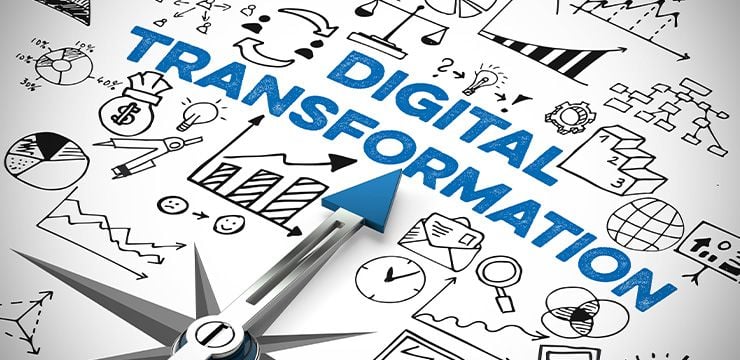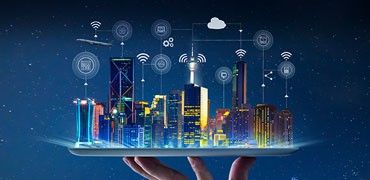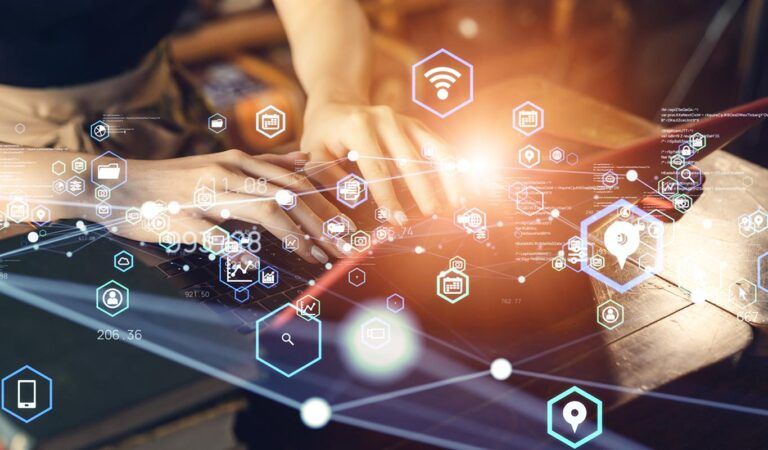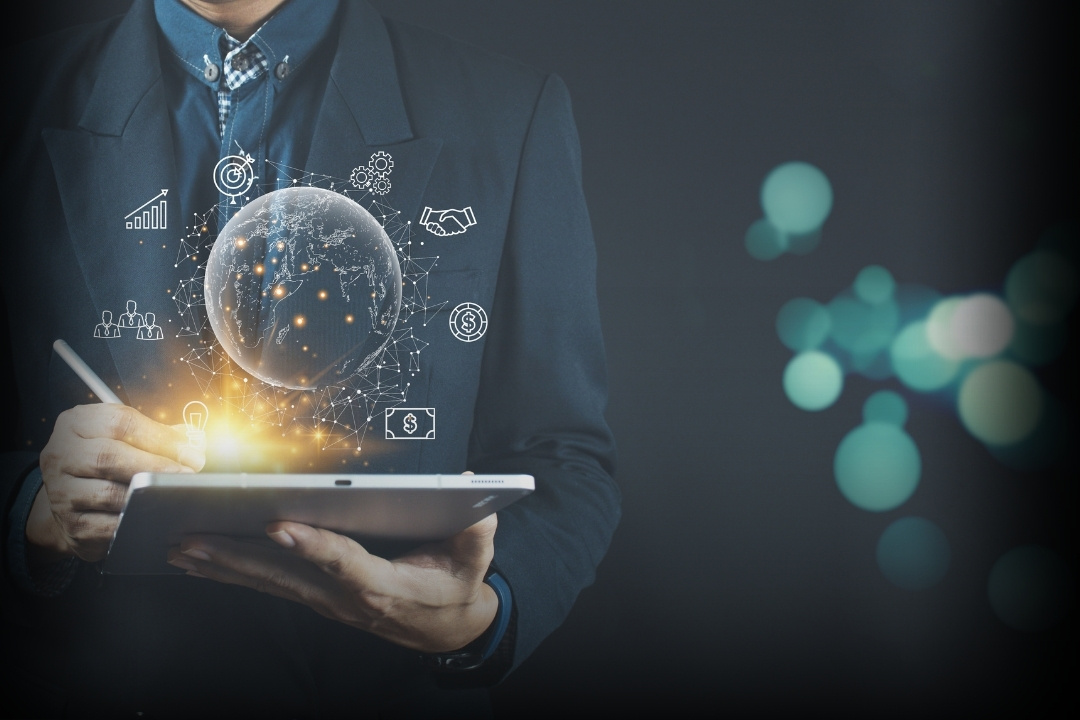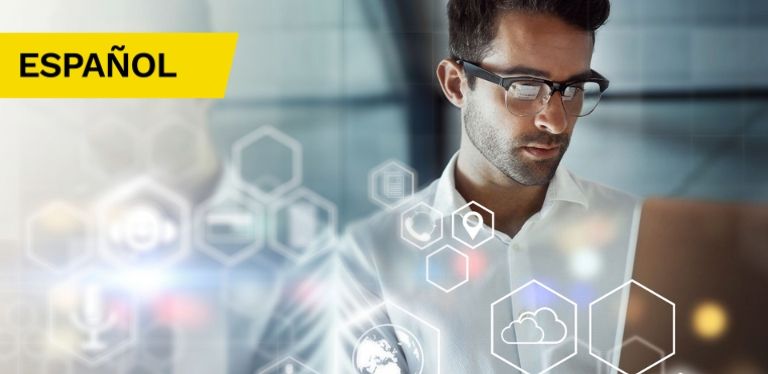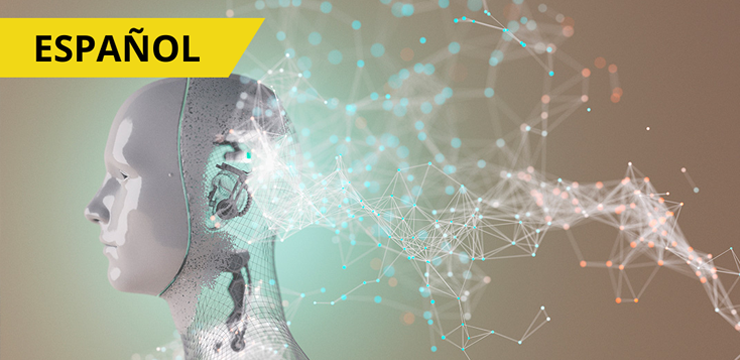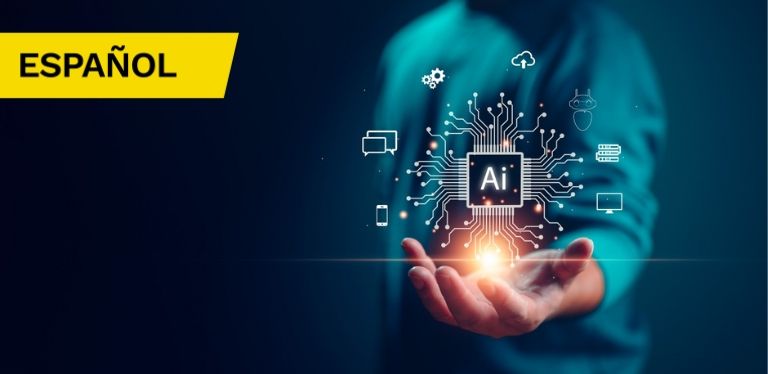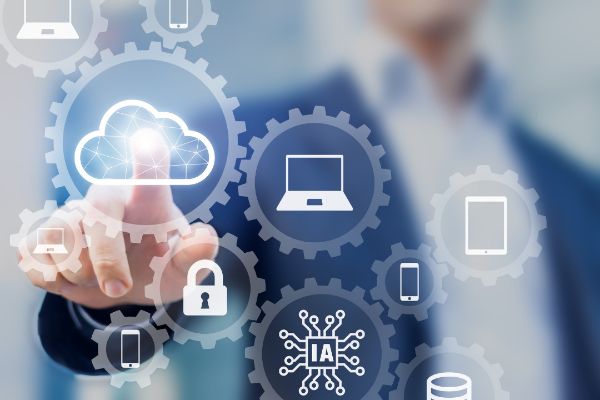Top 5 Ways in Which AI in IoT is Transforming Industries
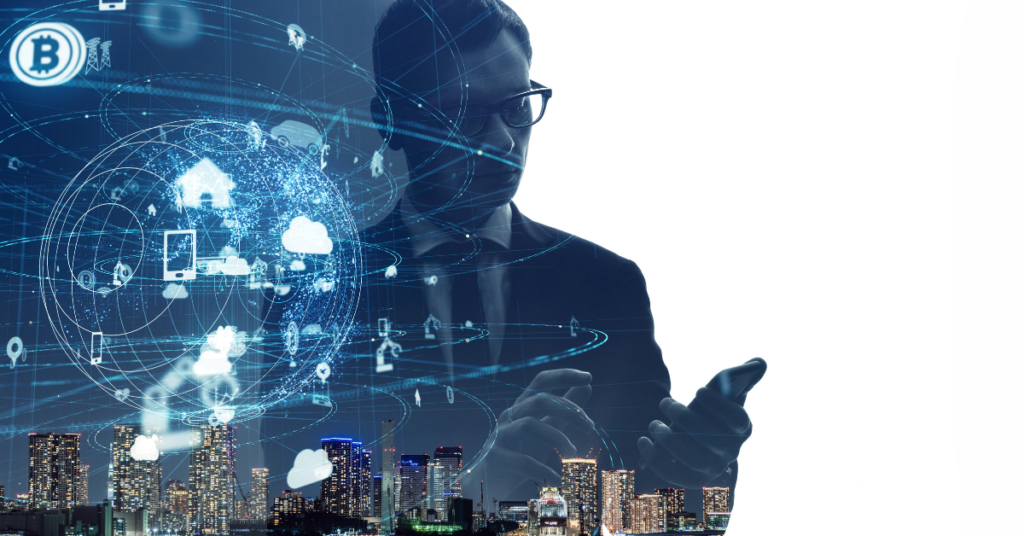
- How Does AI Enhance the Capabilities of Connected Devices in IoT?
- What are the Challenges in Achieving Intelligence and Connectivity Simultaneously in IoT Devices?
- How are Data Scientists Integrating AI Algorithms With IoT Applications?
- What are the Potential Benefits of Integrating AI in IoT Devices?
- Can AI Algorithms be Processed Locally on IoT Devices for Real-Time Decision-Making?
According to Prophet’s The 2023 State of Digital Transformation report, upgrading technology, boosting operational efficiency, and getting better insights from data are the top three priorities for organizations. To do so, businesses across various industries are leveraging artificial intelligence (AI) and the Internet of Things (IoT), the two most popular technologies dominating digital transformation. These two technologies combined can help businesses achieve their goals. This blog discusses the role of AI and IoT (artificial intelligence of things) in facilitating organizational growth and explains its practical uses.
How Does AI Enhance the Capabilities of Connected Devices in IoT?
IoT devices such as smart watches, automated cars, smart home devices, Alexa, Amazon Echo, and Google Assistant are all integrated with AI. Without AI, these devices will not be able to scale according to users’ requirements. In fact, the use of AI in IoT makes devices smarter as IoT enables devices to store, transmit, and process data. AI further enables them to learn from their surroundings by analyzing this data.
For example, Alexa-powered devices learn from the inputs provided by their users and provide customized answers. Moreover, with the use of AI in IoT, devices can perform various activities such as speech-to-text conversion, switching a device on or off, calling a number, and following other voice commands.
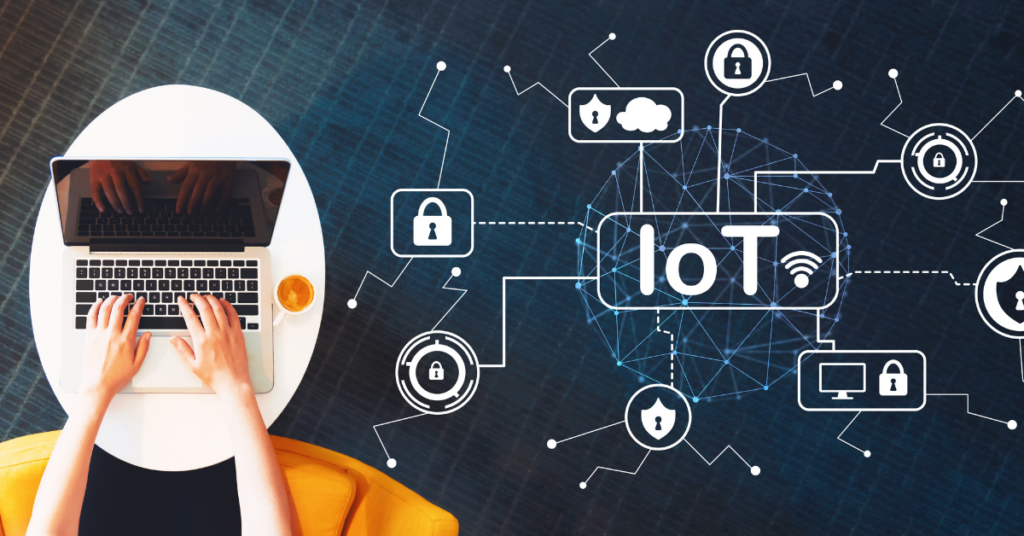
Here is how AI in IoT enhances the functioning of smart devices:
1. Data Analysis
Since IoT devices are interconnected, they collect large amounts of data, which is analyzed by AI algorithms for efficient decision-making. Ultimately, it helps organizations improve their products, fix bugs, and offer better customer service.
2. Personalized User Experiences
AI-IoT devices use cognitive automation to interact with humans and learn from them. They understand user behavior and preferences and suggest personalized solutions or recommendations.
3. Anomaly Detection
Integrating AI in IoT devices enables quick anomaly detection. This is because AI algorithms analyze any unusual data patterns or activity and send alerts. Therefore, AI in IoT helps detect potential security threats or other issues.
4. Real-Time Decision-Making
AI in IoT facilitates real-time decision-making, which makes this technology extremely relevant for organizations that have to make quick and timely decisions. For example, manufacturing, auto-driving vehicles, and smart grids.
5. Resource Optimization
AI algorithms analyze the data transmitted by IoT sensors in smart devices and provide information on how to allocate resources better. For example, the use of AI in IoT in energy consumption models and supply chains helps allocate resources.
ALSO READ: Top 7 IoT Trends That Will Shape the Digital World
What are the Challenges in Achieving Intelligence and Connectivity Simultaneously in IoT Devices?
Even though AI in IoT is helping industries scale, it poses the following challenges that can lead to significant losses for organizations.
1. Data Security and Privacy
Data protection and privacy breaches are the two most critical challenges of integrating AI in IoT. According to The 2023 IoT Security Landscape Report by Bitdefender, IoT devices are among the most vulnerable technologies to cyberattacks. Moreover, 40% of users fear that they might be spied on by their smart devices.
2. Poor Data Quality and Inconsistent Data
IoT technology interlinks or connects several devices across the Internet. Therefore, smart devices have to manage, transmit, and process data from several sources. This results in inconsistent data and poor data quality. Moreover, the infrastructure across multiple devices is not uniform. Therefore, it is difficult for organizations to transmit and analyze data effectively.
3. Data Management
Artificial intelligence of things provides real-time data insights from quick and efficient decision-making. Thus, IoT devices deal with huge amounts of data. However, data collection, preprocessing, training, and formatting at a large scale require technological investment as well as skilled resources. Therefore, data management is another significant challenge in integrating AI in IoT.
4. High Investment Costs
Designing and development of AI in IoT requires huge investment, especially while setting up the initial infrastructure. Moreover, organizations also incur costs related to costs, infrastructure maintenance, operational costs, and hiring AI and IoT experts, which is a major challenge.
5. Adherence to Compliances
AI-IoT devices capture and process confidential or sensitive personal data of users, especially in the banking and health sectors. Therefore, organizations using such devices on a large scale have to comply with stringent data protection laws in various countries. Consequently, they have to hire data privacy and security, corporate governance, and compliance experts.
ALSO READ: The Top 10 Risks Associated With the Internet of Things
How are Data Scientists Integrating AI Algorithms With IoT Applications?
Data scientists are integrating AI in IoT across various industries, enabling organizations to innovate unique business solutions. Here are some of the most common AI-IoT application examples.
1. Robots
One of the most significant applications of AI and IoT is the manufacturing of robots for industrial and domestic usage. Robots are primarily IoT devices that comprise various sensors. Integration of AI enables them to learn from their environment and user inputs. Pepper, SoftBank’s social humanoid robot or smart thermostats by Nest are some of the best examples of AI-IoT applications.
2. Chatbots
Another excellent application of AI in IoT is the development of chatbots to enhance customer service. They provide quick and personalized responses to customers by analyzing their queries, tone, and choice of words. Moreover, the use of AI makes chatbots learn from user feedback and offer more personalized responses to queries. For example, ChatGPT, the generative AI chatbot helps with research and content creation.
3. Virtual Assistants
Creating virtual assistants is one of the best uses of AI in IoT. Such software devices perform various services on behalf of the users through voice commands. For example, Alexa, Google Assistant, and Cortana are IoT devices that leverage AI to offer personalized experiences.
4. Self-Driving Cars
Self-driving cars use IoT sensors and AI algorithms that help them analyze the signals transmitted by the cameras and radars to adapt to their environment. An example is the autopilot feature in Tesla cars.
5. Smart Watches
Wearable fitness trackers by Apple, Samsung, and Google are excellent use cases of AI in IoT. They monitor the vitals of the users, their sleeping activity, stress levels, and physical activity. These devices offer health insights that help diagnose and prevent diseases.
ALSO READ: A Complete Guide on the Growing Field of Human-Computer Interaction
What are the Potential Benefits of Integrating AI in IoT Devices?
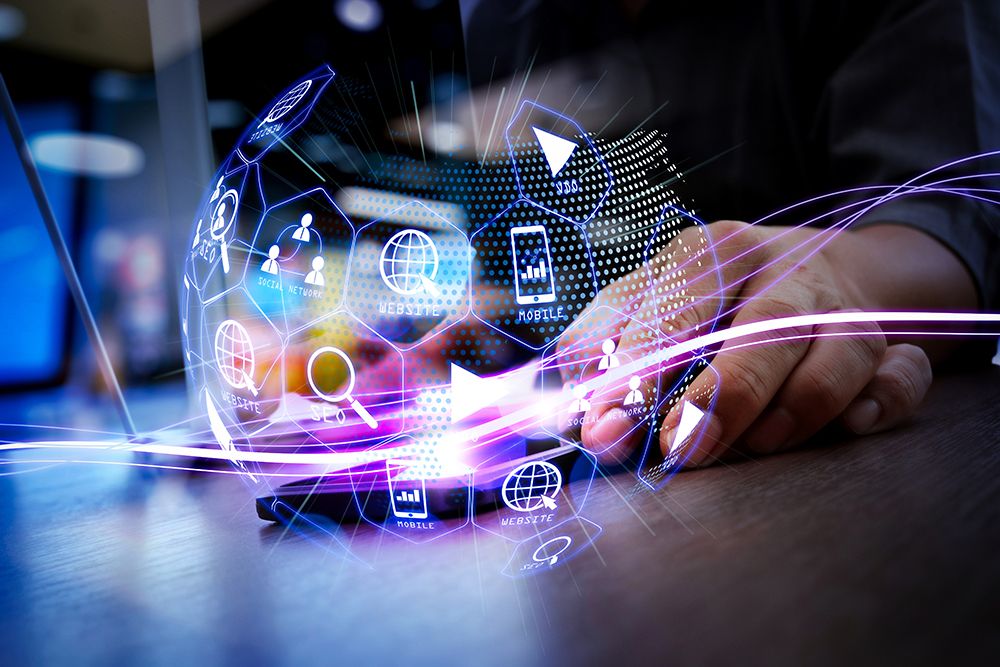
The most significant benefits of AI in IoT are:
Boosts Operational Efficiency
AI in IoT facilitates fast data transmission and automates the decision-making process. This, in turn, boosts operational efficiency. For example, using AI in smart supply chain processes enables real-time tracking of goods and better inventory management. Therefore, it helps optimize supply chain operations and reduces operational costs.
Enhances Scalability
Merging AI with IoT helps organizations scale their operations and grow. For example, with the use of AI in health care IoT devices, hospitals can monitor patients remotely, get instant alerts, and offer AI diagnostic services.
Better Risk Management
The usage of AI in IoT devices is highly beneficial in identifying and mitigating business and operational risks. AI algorithms train themselves to identify potential vulnerabilities or threats to smart networks.
Predictive Maintenance
Implementing AI algorithms in IoT devices offers significant industrial benefits, especially predictive maintenance. AI algorithms analyze data and inform users of the most convenient time to schedule automated maintenance. Moreover, the smart networks also predict machinery breakdown and send warning signals to users. Therefore, AI in IoT reduces downtime and helps organizations save costs.
Can AI Algorithms be Processed Locally on IoT Devices for Real-Time Decision-Making?
Big data analytics is one of the key advantages of artificial intelligence of things. This is called Edge AI. According to IBM, Edge AI is the integration of AI on local edge devices like IoT for real-time data processing and analysis.
Such devices use edge computing, an approach that involves bringing the device closer to the data source. With the help of artificial intelligence, data processing takes place on the network edge rather than on a centralized server. Therefore, AI-IoT devices can process data locally on smart networks to reduce latency and facilitate real-time decision-making.
Hence, smart devices such as automatic cars, smart cameras, and health devices provide real-time alerts by processing data locally.
ALSO READ: The Top 10 AI Trends 2024 You Should Know About
The global AI in IoT market is expected to grow by 24.8% from 2023 to 2032. AI-IoT-powered solutions are rapidly transforming business processes and boosting automation. Organizations, too, are leveraging the power of AI in IoT to gain a competitive edge and foster innovation. Hence, there is likely to be a rise in demand for AI and IoT experts. Now is the best time to learn advanced technologies and build a future-proof career. You can learn advanced AI skills and IoT concepts with Emeritus’ online artificial intelligence courses and machine learning courses.
Write to us at content@emeritus.org





